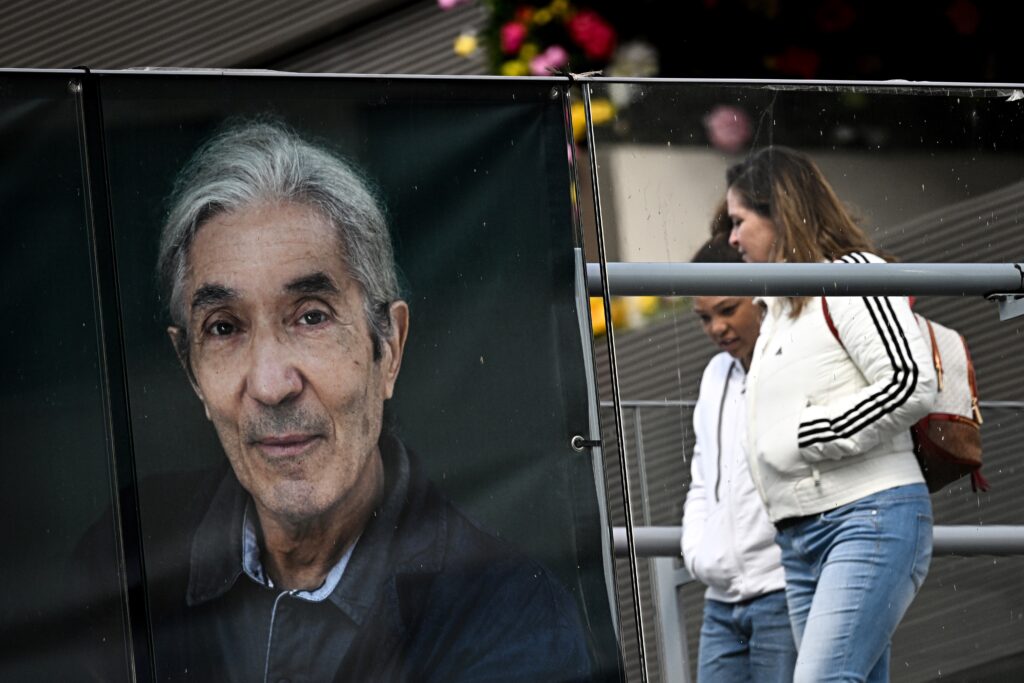An Algerian court is expected to deliver a verdict Tuesday on prosecutors’ bid to double the jail term of a dual-national author whose conviction has strained ties with France.Boualem Sansal, 80, was first sentenced to five years behind bars on March 27 on charges related to undermining Algeria’s territorial integrity over comments made to a French media outlet.The prosecutor general appealed last month and is seeking a 10-year prison sentence.A prize-winning figure in North African modern francophone literature, Sansal is known for his criticism of Algerian authorities as well as of Islamists.The case against him arose after he told the far-right outlet Frontieres that France had unjustly transferred Moroccan territory to Algeria during the colonial period from 1830 to 1962 — a claim Algeria views as a challenge to its sovereignty and that aligns with longstanding Moroccan territorial assertions.Sansal was detained in November 2024 upon arrival at Algiers airport. On March 27, a court in Dar El Beida sentenced him to a five-year prison term and fined him 500,000 Algerian dinars ($3,730).Appearing in court without legal counsel on June 24, Sansal said the case against him “makes no sense” as “the Algerian constitution guarantees freedom of expression and conscience”.He defended his remarks by citing the African Union’s post-independence declaration that colonial borders should remain inviolable.When questioned about his writings, Sansal asked: “Are we holding a trial over literature? Where are we headed?”- Diplomatic rift -His family has expressed fears prison could jeopardise his health, noting he is receiving treatment for prostate cancer.French President Emmanuel Macron has appealed to his Algerian counterpart Abdelmadjid Tebboune to show “mercy and humanity” toward Sansal.Authorities in the North African country maintain that due process is being respected.The writer’s conviction further strained already tense France-Algeria relations, which have been complicated by issues such as migration and Macron’s recent recognition of Moroccan sovereignty over Western Sahara, a disputed territory claimed by the Algeria-backed Polisario Front.Last month, the French National Assembly passed a resolution calling for Sansal’s immediate release and linking future EU-Algeria cooperation to respect for human rights.While his case has become a cause celebre in France, among Algerians his past support for Israel has made him unpopular with a large segment of the population who back the Palestinian cause.Sansal faces charges including “undermining national unity”, “insulting state institutions”, “harming the national economy”, and “possessing media and publications threatening the country’s security and stability”.Sansal’s daughters, Nawel and Sabeha, told AFP in May they felt “a sense of total helplessness” over their father’s imprisonment “simply for expressing an opinion”.Some of the author’s relatives have expressed hope that he will be pardoned on July 5, the 63rd anniversary of Algeria’s independence.”Enough is enough. The Algerian authorities must now understand that France defends its citizens,” said the president of Sansal’s support committee, Noelle Lenoir, in an interview Tuesday.”We are outraged by the attitude of the Algerian government, which has nothing to gain — neither at the European level nor in its relations with France.”
An Algerian court is expected to deliver a verdict Tuesday on prosecutors’ bid to double the jail term of a dual-national author whose conviction has strained ties with France.Boualem Sansal, 80, was first sentenced to five years behind bars on March 27 on charges related to undermining Algeria’s territorial integrity over comments made to a French media outlet.The prosecutor general appealed last month and is seeking a 10-year prison sentence.A prize-winning figure in North African modern francophone literature, Sansal is known for his criticism of Algerian authorities as well as of Islamists.The case against him arose after he told the far-right outlet Frontieres that France had unjustly transferred Moroccan territory to Algeria during the colonial period from 1830 to 1962 — a claim Algeria views as a challenge to its sovereignty and that aligns with longstanding Moroccan territorial assertions.Sansal was detained in November 2024 upon arrival at Algiers airport. On March 27, a court in Dar El Beida sentenced him to a five-year prison term and fined him 500,000 Algerian dinars ($3,730).Appearing in court without legal counsel on June 24, Sansal said the case against him “makes no sense” as “the Algerian constitution guarantees freedom of expression and conscience”.He defended his remarks by citing the African Union’s post-independence declaration that colonial borders should remain inviolable.When questioned about his writings, Sansal asked: “Are we holding a trial over literature? Where are we headed?”- Diplomatic rift -His family has expressed fears prison could jeopardise his health, noting he is receiving treatment for prostate cancer.French President Emmanuel Macron has appealed to his Algerian counterpart Abdelmadjid Tebboune to show “mercy and humanity” toward Sansal.Authorities in the North African country maintain that due process is being respected.The writer’s conviction further strained already tense France-Algeria relations, which have been complicated by issues such as migration and Macron’s recent recognition of Moroccan sovereignty over Western Sahara, a disputed territory claimed by the Algeria-backed Polisario Front.Last month, the French National Assembly passed a resolution calling for Sansal’s immediate release and linking future EU-Algeria cooperation to respect for human rights.While his case has become a cause celebre in France, among Algerians his past support for Israel has made him unpopular with a large segment of the population who back the Palestinian cause.Sansal faces charges including “undermining national unity”, “insulting state institutions”, “harming the national economy”, and “possessing media and publications threatening the country’s security and stability”.Sansal’s daughters, Nawel and Sabeha, told AFP in May they felt “a sense of total helplessness” over their father’s imprisonment “simply for expressing an opinion”.Some of the author’s relatives have expressed hope that he will be pardoned on July 5, the 63rd anniversary of Algeria’s independence.”Enough is enough. The Algerian authorities must now understand that France defends its citizens,” said the president of Sansal’s support committee, Noelle Lenoir, in an interview Tuesday.”We are outraged by the attitude of the Algerian government, which has nothing to gain — neither at the European level nor in its relations with France.”
